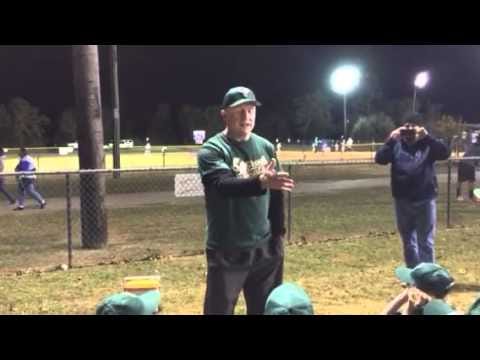There’s a book called How To Be A Great Boss. I haven’t read it and probably won’t. 48 is the age you get to do or not do the things you want (so were 47 and 46…). And I do not want. But the title of the book has me thinking about kids’ sports again. And I’m convinced I’ve cracked a code that bedevils many of my brethren, the dutiful citizen-soldier volunteers of the Saturday sideline – how to be a GREAT coach. This one’s for them.
1. Coach other kids through your own kids – You CANNOT tell someone else’s child they are lazy or slow-witted. I’ve seen some guys try and it never goes well – sometimes the kids cry and make you feel terrible. Sometimes their moms get nuts and confront you during the game. Parents these days...They wonder why their kids are so soft.
But consider for a moment that you CAN give this kind of straight-forward feedback to your own kids (as long as their mom isn’t at the game). And if you say it loudly, the other players hear it and know it applies to them too. There you go – your lesson on work ethic and IQ has been installed.
2. Have a very, very rigid plan – Kids need structure, so this is probably the most important thing you can do. Listen, I’m going to reveal something here that I probably shouldn’t because I’ll lose my competitive advantage. But these essays are important to me, so here it is. Youtube. In my experience, spending about 4 hours on Youtube for every hour of practice is the best way to formulate your rigid, top-secret practice plan.
3. Use sports as a metaphor for life – The single best lesson you can impart as a coach is that life isn’t fair. For example, my kids log more innings at shortstop and more minutes at point guard than anyone in the history of our leagues. This really sucks for kids who want to give those positions a shot. But if they wanted it that badly then maybe they could have asked their dad to forgo his eighth Miller Lite in the right field bleachers for a change and coach 3rd base.
4. Use sports as a metaphor for life, part 2 - Occasionally, you’ll encounter a perceptive child who wants to know why an adult umpire just screwed up his big moment calling strike three on a ball at the ankles. He may use words, or if he’s more non-verbal like mine, body language, to express his feelings. The thing to do here is to let the kid know you have his back. Pile on with vigor! We don’t like other officials in our lives, do we? How do you feel about meter maids? The IRS? How about the guy that doesn’t let you get to your seat at the ballpark without showing him your ticket? These people all suck! And kids too need to know that this ump sucks. Maybe in Europe they celebrate their refs regardless of competence. But this is America. And that was a terrible call.
I’m not certain whether or not I’ll turn these ideas into a book. I may. I’ve tried every one of them and I can’t say they’ve yielded the results I’d hoped. But Rome wasn’t built in a day and neither are professional athletes. The key is consistency.



